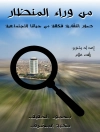This is the first book-length study to focus primarily on the role of class in the encounter between South Asians and British institutions in the United Kingdom at the height of British imperialism.
In a departure from previous scholarship on the South Asian presence in Britain, ‘The better class’ of Indians emphasizes the importance of class as the register through which British polite society interpreted other social distinctions such as race, gender, and religion. Drawing mainly on unpublished material from the India Office Records, the National Archives, and private collections of charitable organizations, this book examines not only the attitudes of British officials towards South Asians in their midst, but also the actual application of these attitudes in decisions pertaining to them.
This fascinating book will be of particular interest to scholars and general readers of imperialism, immigration as well as British and Indian social history.
Table of Content
Acknowledgements
Abbreviations
1. Ranjitsinjhi’s Britain
Part I: Institutions
2. The India Office
3. The National Indian Association
4. London’s inner-city missions to Indians
Part II: Interactions
5. Imperial subjecthood and legal identity
6. Patterns of compassion: Aiding Indians in need
7. Scholarships and the civilising mission
8. Assimilation and ostracism in education
9. A hierarchical empire
Bibliography
Index
About the author
A. Martin Wainwright is Associate Professor of History at The University of Akron












